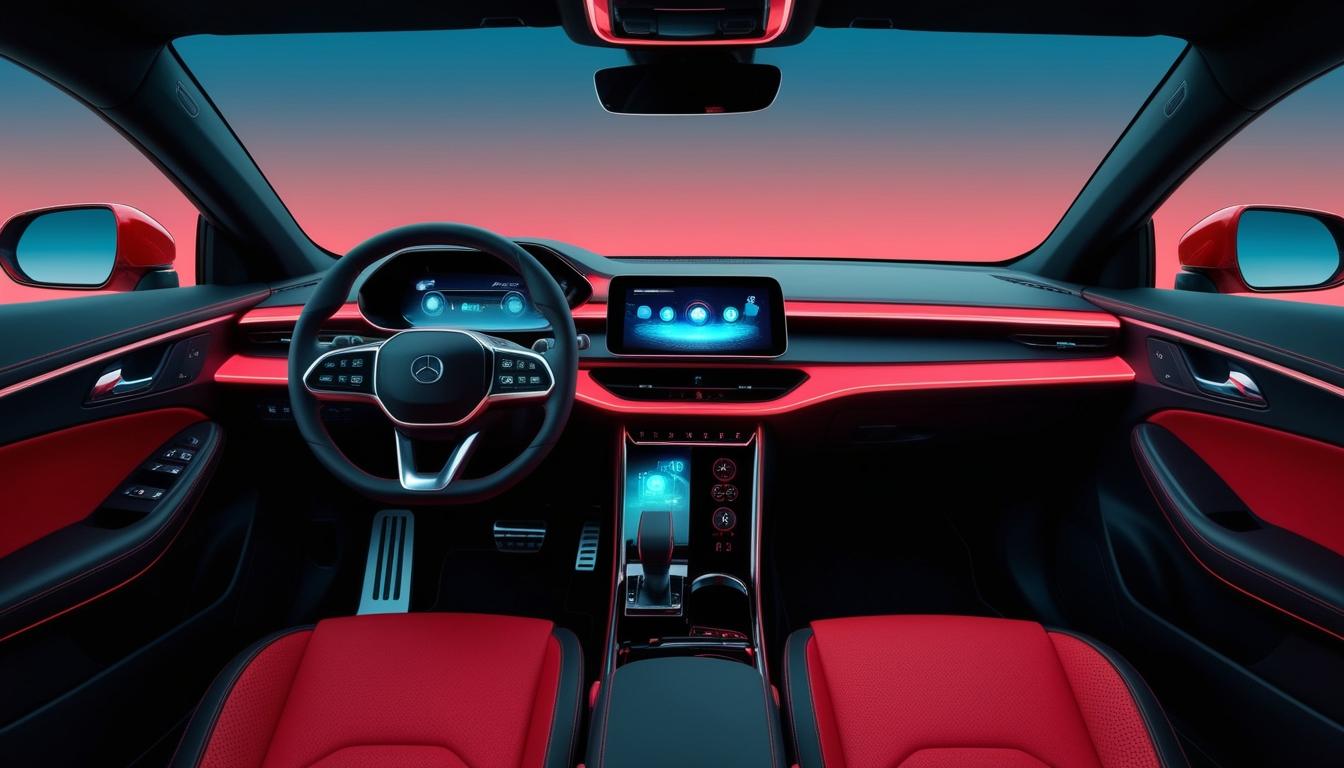At the annual Consumer Technology Association’s trade show, CES 2025, held in Las Vegas this week, automakers have unveiled a range of innovative technologies aimed at enhancing in-vehicle experiences. The showcase featured advancements including interior lighting systems designed to mitigate motion sickness, holographic dashboards visible on windshields, and AI-driven voice assistants integrated into infotainment systems, significantly transforming the driving experience.
A highlight of the event was Hyundai Mobis's introduction of full-windshield holographic technology that projects essential driving information directly across the windshield. This futuristic display will not be commercially available for several years. Axel Maschka, executive vice president and head of the business division at Hyundai Mobis, remarked that these enhancements strive to "make life on board more comfortable" and emphasised the growing significance of a car's interior space in attracting consumers.
The holographic display from Hyundai Mobis is designed to keep the driver's focus on the road while providing entertaining options for passengers, such as movies and video games, which remain undetectable to the driver for safety reasons. Maschka stated that this technology provides a clearer line of sight for key driving information while minimizing distractions from other sources within the vehicle.
Complementing this, BMW presented its new Panoramic iDrive and Operating System X, set to feature in all new models launching later this year. The iDrive system creates a panoramic display on the lower windscreen, which can be operated through touch and voice commands, and allows for a high degree of personalisation with different colours and applications.
Sony Honda Mobility showcased their forthcoming electric vehicle, "Afeela 1," which will be equipped with an AI-powered voice assistant. Yasuhide Mizuno, CEO of Sony Honda Mobility, highlighted the conversational capacity of the Afeela 1's assistant, stating that customers could engage with it to receive information while driving. Scheduled for sale later this year, with deliveries expected by mid-2026, the Afeela 1 will also feature a panoramic screen and a rich infotainment system filled with various entertainment applications.
Additionally, Honda introduced its "AISMO OS," the operating system for its new 0 series of electric vehicles, with the first models launching in North America next year. According to Katsushi Inoue, the global head of electrification business development at Honda, the in-vehicle software will continuously evolve post-purchase, offering a more personalised experience as it is used.
Amidst the excitement surrounding these technological innovations, industry analyst Tim Stevens raised concerns about the potential for overwhelming complexity in vehicle technology, noting the presence of multiple touchscreens and interfaces. However, he acknowledged the promise of technologies like AI-powered voice assistants, which could streamline operations by allowing drivers to request directions or recommendations without needing to divert their attention to their phones.
Apart from the advancements in in-cabin experiences, discussions around sustainable energy solutions gained prominence at the show. Honda announced plans to collaborate with seven other automakers to create the "IONNA" charging network across North America, aiming to ensure that users of its 0 Series will have access to over 100,000 charging stations by 2030. The company is also exploring AI technologies, including potential partnerships with Amazon Web Services, to offer personalised charging experiences for electric vehicle owners, simplifying access to charging facilities and payment processes.
This year's CES has illustrated how automakers are recalibrating their focus towards enhancing the driver experience while also addressing the important issue of sustainability in the automotive industry.
Source: Noah Wire Services
